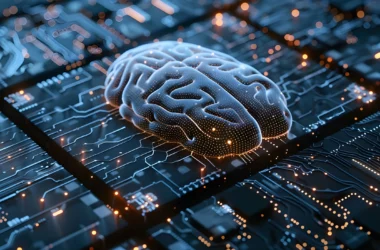These systems, powered by natural language processing (NLP), machine learning, and other advanced AI techniques, are creating new opportunities for both users and companies. This essay explores the evolution, applications, advantages, challenges, and future potential of AI chat.
The Evolution of AI Chat
The journey of AI chat begins with the development of basic chatbot systems in the 1960s, with the creation of ELIZA, one of the first programs designed to simulate human-like conversation. However, early AI chat systems were quite limited, relying heavily on pre-programmed scripts and simple pattern-matching algorithms. Over the years, as computational power and algorithms improved, AI chat systems became more sophisticated. The advent of natural language processing and machine learning has allowed chatbots to understand context, handle ambiguity, and respond with a degree of relevance that earlier models could not.
In the 2010s, chatbots and virtual assistants, such as Apple’s Siri, Amazon’s Alexa, and Google’s Assistant, began to gain mainstream popularity. These systems could handle more complex tasks such as answering questions, managing schedules, controlling smart home devices, and providing personalized recommendations. In recent years, the development of advanced language models like OpenAI’s GPT (Generative Pre-trained Transformer) has taken AI chat to new heights. These models can engage in deep, contextually rich conversations, generate human-like text, and adapt to a wide range of user inputs.
Applications of AI Chat
AI chat has found applications across numerous fields, providing significant improvements in both customer service and personal productivity. In customer service, AI-powered chatbots can handle a wide range of inquiries, from simple FAQs to complex technical support issues. This automation not only reduces the workload on human agents but also enables businesses to offer 24/7 support, improving customer satisfaction.
In e-commerce, AI chat systems are deployed to assist shoppers by providing personalized recommendations, answering product-related questions, and even completing transactions. This level of personalization enhances the shopping experience and drives conversions for businesses.
AI chat is also prevalent in healthcare, where chatbots are used to help patients schedule appointments, provide symptom checkers, and give mental health support through therapeutic conversation. Furthermore, AI-powered virtual assistants can act as aids for those with disabilities, helping them navigate technology, communicate, or perform daily tasks more efficiently.
Beyond business and healthcare, AI chat has found a place in education, where it assists students with homework, provides tutoring, and delivers interactive learning experiences. Virtual learning assistants can answer questions about a variety of topics, providing support outside of regular classroom hours.
Advantages of AI Chat
AI chat offers several distinct advantages that benefit both users and organizations. For users, AI chat provides convenience, as it enables instantaneous responses to inquiries at any time of day. Unlike traditional customer support, which may involve long waiting times or limited availability, AI chatbots can respond immediately, offering a fast and efficient experience. Moreover, AI chat systems are highly scalable. A single chatbot can simultaneously handle thousands of conversations, offering businesses a way to efficiently manage customer interactions during peak times.
For businesses, AI chat systems lead to cost savings by automating routine tasks, reducing the need for human labor in areas such as customer service and support. This allows employees to focus on more complex and value-added tasks. AI chat also enhances data collection and analytics, as chatbots can log every interaction and provide valuable insights into customer preferences, behaviors, and pain points.
Another significant advantage is personalization. AI chat systems can learn from previous interactions with users, offering increasingly tailored responses and solutions over time. This level of personalization helps build stronger connections with customers and creates more meaningful engagement.
Challenges of AI Chat
Despite its many advantages, AI chat still faces several challenges. One of the biggest limitations is understanding and processing complex human emotions and nuances in conversation. While AI has become proficient at handling structured queries, it often struggles with ambiguity, humor, irony, or sarcasm. Misinterpretation of user input can lead to frustrating or irrelevant responses, undermining the effectiveness of AI chat systems.
Another challenge is ensuring privacy and security in conversations. As AI chat systems often require access to personal information and sensitive data, there is a significant risk of breaches or misuse. Companies need to implement robust security measures and comply with privacy regulations to ensure that users’ data is protected.
Additionally, there are concerns about the impact of AI chat on employment. While AI chat systems can increase efficiency, they may also displace jobs, particularly in fields like customer service, where human agents are often replaced by automated systems. Companies need to carefully consider the ethical implications of AI adoption and find ways to balance technological advancement with social responsibility.
The Future of AI Chat
Looking ahead, the potential of AI chat is vast. With the continued advancement of deep learning, natural language processing, and AI ethics, AI chat systems are poised to become even more intelligent, intuitive, and integrated into daily life. Future chatbots could evolve to understand complex emotions and offer empathetic responses, improving the human-like qualities of interactions. They may also be capable of multi-modal communication, combining text, voice, and even images to enrich conversations.
In the business world, AI chat could evolve from simple customer support tools into fully-fledged conversational agents capable of handling a wide range of business tasks, from sales and marketing to human resources and logistics. These systems may eventually work alongside human employees, enhancing productivity and driving innovation across industries.
In education, AI chat could become an essential tool for personalized learning, providing individualized instruction based on a student’s learning style, pace, and preferences. Similarly, in healthcare, AI chat could offer more sophisticated diagnostic tools, allowing for better-informed decisions and more efficient treatment options.
AI chat has come a long way since its inception, with advancements in natural language processing and machine learning creating more sophisticated and capable systems. Its applications in customer service, healthcare, education, and more demonstrate its potential to revolutionize industries and enhance everyday life. However, challenges remain in areas such as emotional understanding, privacy, and ethics, which must be addressed to ensure AI chat evolves in a responsible and beneficial way. As technology continues to advance, AI chat systems are likely to become increasingly integral to communication, reshaping how humans interact with machines and each other in the future.








